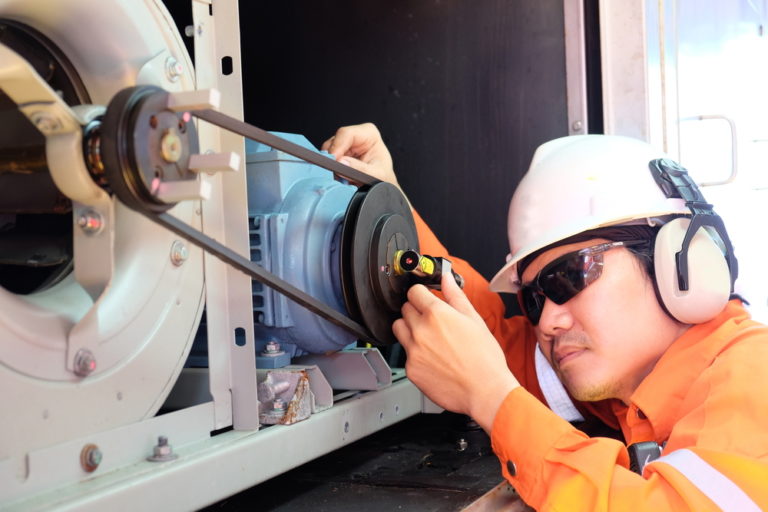As technology becomes increasingly advanced, mechanical engineers face new challenges and goals to overcome. With its roots embedded in the principles of physics and mathematics, mechanical engineering encompasses a vast array of disciplines, from designing intricate machinery to developing sustainable energy solutions.
Mechanical engineers are the driving force behind innovation and progress. They work in almost every industry, from manufacturing and robotics to aerospace and automotive. This type of engineering discipline is not solely focused on creating solutions for today’s challenges; it’s about paving the way for innovation and pushing the boundaries of what’s possible.
What Is Mechanical Engineering?
Mechanical engineering is a dynamic discipline that includes designing, analyzing, and implementing mechanical systems to solve real-world problems. This field applies principles of physics and mathematics to create practical solutions that improve the way we live, work, and interact with the world around us. From creating the smallest handheld devices to massive industrial machinery, mechanical engineers are involved in virtually every aspect of modern society.
Practices and education are changing for mechanical engineers, forcing them to constantly adapt and improve. Mechanical engineers must be versatile and equipped with a diverse skill set that enables them to work in any given industry, from automotive to healthcare.
What Do Mechanical Engineers Do?
The work of mechanical engineers spans across various stages of production, from conceptualization and design to manufacturing, testing, and even maintenance. Due to their wide involvement in the creation of countless machines, mechanical engineers are often in high demand.
One of the most prominent duties of mechanical engineers is to design and develop new products and systems. This involves understanding the requirements and constraints of a project, conceptualizing solutions, and creating detailed designs using computer-aided design (CAD) software. Mechanical engineers must consider factors such as functionality, performance, safety, and cost-effectiveness during the design process.
Once the design is finalized, mechanical engineers oversee the manufacturing and production of the product or system. They collaborate with manufacturers and technicians to ensure that components are fabricated to specifications and assembled correctly. This may involve selecting appropriate materials, determining manufacturing processes, and optimizing production efficiency.
Mechanical engineers must also test and evaluate prototypes to ensure they meet quality standards and requirements. They conduct various tests, simulations, and analyses to assess factors such as structural integrity, durability, and functionality. Additionally, mechanical engineers may troubleshoot problems, identify areas for improvement, and implement design modifications based on testing results and feedback.

Common Types of Mechanical Engineers
Mechanical engineers can work in countless industries, each focusing on specific aspects of systems and applications. Here are some common specialties a mechanical engineer can work in:
- Aerospace: These engineers specialize in the design, development, and testing of aircrafts and spacecrafts. They work on propulsion systems, aerodynamics, structural design, and materials used in aerospace vehicles.
- Automotive: Automotive engineers focus on the design, manufacturing, and testing of automotive systems and vehicles. They work on engines, transmissions, frames, suspension systems, and safety features to enhance vehicle performance, efficiency, and safety.
- Marine: Marine engineers specialize in the design, construction, and maintenance of various marine vessels like ships, boats, and offshore platforms. They work on propulsion systems, hull design, stability, and navigation systems to ensure the safe and efficient operation of marine vehicles.
- MEP (Mechanical, Electrical, and Plumbing): MEP engineers design and optimize systems for indoor climate control in buildings. They work on various heating, cooling, and ventilation systems to ensure comfort, energy efficiency, and air quality.
- Energy: Energy engineers focus on the design and optimization of energy systems and technologies, including renewable energy systems like solar, wind, and hydroelectric power generation, as well as traditional energy sources like fossil fuels and nuclear power.
- Manufacturing: Manufacturing engineers design and optimize manufacturing processes and systems to produce goods efficiently and cost-effectively. They work on assembly lines, machining operations, automation systems, and quality control processes.
- Materials: Materials engineers specialize in the development, selection, and testing of materials used in mechanical systems and applications. They work on metals, polymers, composites, and ceramics to optimize properties such as strength, durability, and thermal conductivity.
- Robotics: Robotics engineers design, build, and program robotic systems for various applications. They integrate mechanical components with sensors, actuators, and control algorithms to create autonomous and intelligent robots.
What Skills Do Mechanical Engineers Need?
Since mechanical engineers often handle numerous responsibilities and solve complex problems, they’re expected to excel at many skills, including:
- Analytical and Problem-Solving
- Technical Proficiency
- Creativity and Innovation
- Communication
- Collaboration and Teamwork
- Project Management
- Attention to Detail
- Adaptability and Flexibility
- Ethical and Professional Conduct
How to Get a Job in Mechanical Engineering
As of 2022, the median pay for mechanical engineers was $96,310. Most employers require at least a bachelor’s degree in mechanical engineering to get a job in this field.
If you’re new to the field, it’s best to gain experience by getting an internship. Developing hands-on experience will expose you to new methods and help you further develop your skills. This can set you apart from other candidates when applying for jobs at the beginning of your career.
If you’re an experienced mechanical engineer looking for new opportunities, continuous learning can help you. By staying up to date with new trends and technologies, you’re proving that you’re resilient in this fast-paced environment.
Are you curious about exploring the different types of mechanical engineering jobs? Austin Nichols Technical Search is dedicated to helping engineers of various disciplines and backgrounds find their next position.
Contact us today to speak to our skilled recruiters about available positions.










